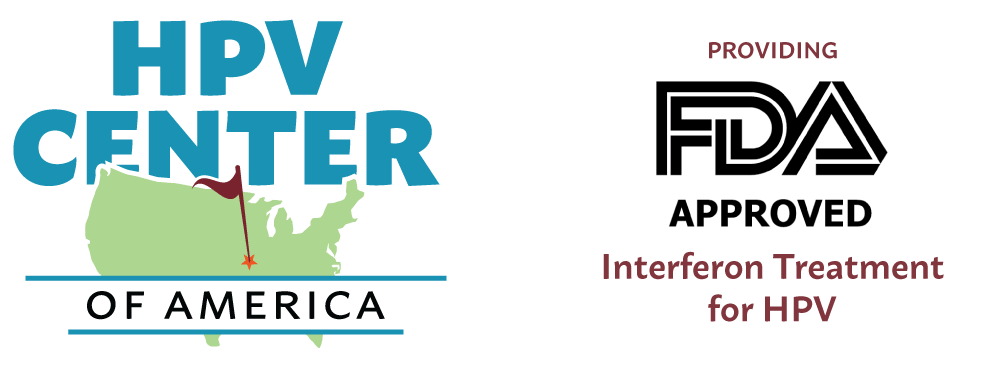HPV in Women
Most forms of HPV in women will clear up on their own. Almost every sexually active woman will contract the HPV virus during her life. However, there are high risk and low risk forms of HPV which women need to be concerned about.
According the Centers for Disease Control, there are over 40 types of HPV that can infect the genitals of females. These HPV types can also infect the mouth and throat.
HPV Health Concerns for Women:
Genital Warts
Genital warts and anal warts are caused by the human papillomavirus, HPV. The warts can come in many shapes and sizes from small to large, raised or flat. The appearance is many times described as a cauliflower. Warts can appear weeks or months after having contact with an infected partner. Many times, the warts will go away on their own, but some cases of warts can be persistent and keep growing. If warts are in the vagina, they may not be visible but could cause bleeding or a discharge. Genital warts usually are not cancerous, however, it’s important to pay attention to persistent warts because they could be more serious and turn into cancer.
Cervical Cancer and Other Cancers
Almost all cervical cancer is caused by HPV. Ongoing research is still being done to understand how and why HPV causes these cancers. Cervical cancer is one of the easiest cancers to treat if caught early. It’s important to see a health care provider to be screened for cervical cancer. For women, there are two tests: The PAP test or PAP smear and HPV test. The PAP is recommended for women 21-65 and maybe as young as 18 depending on sexual activity. The HPV test is recommended for women over 30.
HPV also causes cancers of the vulva, vagina or anus. These cancers are rare. It’s important to contact your health care provider if you have bleeding that is not caused by your period or notice any lumps or growths in the genital or anal area.
Another type of cancer, not related to the genital region is head and neck cancer called oropharyngeal cancer. This is cancer in the back of throat, including the base of the tongue and tonsils. Risk factors of developing this kind of cancer in the past was related to alcohol and tobacco use. Now, researchers have found that HPV is a prime factor. The mucous membranes of the throat and mouth are similar to the cervix, which makes for a fertile place for the HPV infection to develop. More men with HPV develop this type of cancer than women. When caught early enough, oral, throat, head and neck cancers are highly curable.
HPV and Pregnancy
If a woman is infected with HPV when she is pregnant, there usually aren’t any problems. However, if the HPV produces genital warts, these can grow during pregnancy. A rare condition called recurrent respiratory papillomatosis is when children develop warts in the throat.
Cervical cell changes can occur due to HPV. That’s why it’s important to have routine cervical cancer screening even during pregnancy.
Most forms of HPV in women will clear on their own. It’s important to do what you can to limit your risk of HPV infection. Getting treatment for genital warts and having regular screenings will help you to take charge of your health and wellbeing.

Intramuscular interferon-beta treatment of cervical intraepithelial neoplasia II associated with human papilloma infection.
Interferon-beta administered intramuscularly has shown to be an efficacious treatment of CIN II (cervical intraepithelial neoplasia II) associated with HPV infection, without evident side effects; it can be used in patients requiring medical treatment with at least one-year monitoring cervical biopsies or as an adjuvant surgical treatment (which remains the principal treatment) in the management of patients suffering from CIN II associated with HPV infection.
CLICK BELOW FOR MORE INFORMATION:
https://pubmed.ncbi.nlm.nih.gov/8009976/
Intramuscular beta-interferon in the treatment of cervical intraepithelial neoplasia (CIN) associated with human papilloma virus (HPV) infection.
In an attempt to find less aggressive and more efficacious tools for the treatment of cervical neoplasia (CIN) associated with genital HPV infection, the authors have examined a therapeutic approach based on the strengthening of natural defenses.
CLICK BELOW FOR MORE INFORMATION:
https://www.ncbi.nlm.nih.gov/pubmed/7838417
Intralesional beta-interferon treatment of cervical intraepithelial neoplasia associated with human papillomavirus infection.
Intralesional IFN proved to be effective treatment for CIN associated with HPV infection (cure rate: 80%) and well accepted because hospitalization is not required and no important side effects occur.
CLICK BELOW FOR MORE INFORMATION:
https://www.ncbi.nlm.nih.gov/pubmed/8016908
Local administration of interferon-alpha in cases of cervical intraepithelial neoplasia associated with human papillomavirus infection.
“These results suggest that treatment with interferon-alpha is an effective therapeutic method for CIN associated with HPV infection, and 10 administrations of 3 mIU constitute the optimal dose.”
CLICK BELOW FOR MORE INFORMATION:
https://www.ncbi.nlm.nih.gov/pubmed/17415845
Adjuvant interferon for anal condyloma
“Adjuvant interferon treatment can reduce the high recurrence rate of anal condyloma seen after surgical extirpation…”
CLICK BELOW FOR MORE INFORMATION:
https://link.springer.com/article/10.1007/BF02257792
Condylomata Acuminata (anogenital warts)
“Local or systemic treatment with interferon may also decrease the likelihood of recurrence following surgical excision or ablative therapy, but is uncommonly used in clinical practice…”
CLICK BELOW FOR MORE INFORMATION:
http://cursoenarm.net/UPTODATE/contents/mobipreview.htm?10/50/11040?source=HISTORY
No effect of intralesional injection of interferon on moderate cervical intraepithelial neoplasia
No positive benefits of interferon treatment were detected on either the CIN 2 or on the persistence of HPV types. It is concluded that intralesional injection of interferon has no place in the treatment of CIN.
CLICK BELOW FOR MORE INFORMATION:
https://obgyn.onlinelibrary.wiley.com/doi/abs/10.1111/j.1471-0528.1990.tb02552.x
Intralesional recombinant alpha 2B interferon in the treatment of human papillomavirus-associated cervical intraepithelial neoplasia.
Intraperilesional treatment of HPV-associated CIN with recombinant alpha 2B IFN does not appear to be a valid substitute for traditional treatment, but it could be considered in certain cases when surgery is not advised.
CLICK BELOW FOR MORE INFORMATION:
https://www.ncbi.nlm.nih.gov/pubmed/1326126



